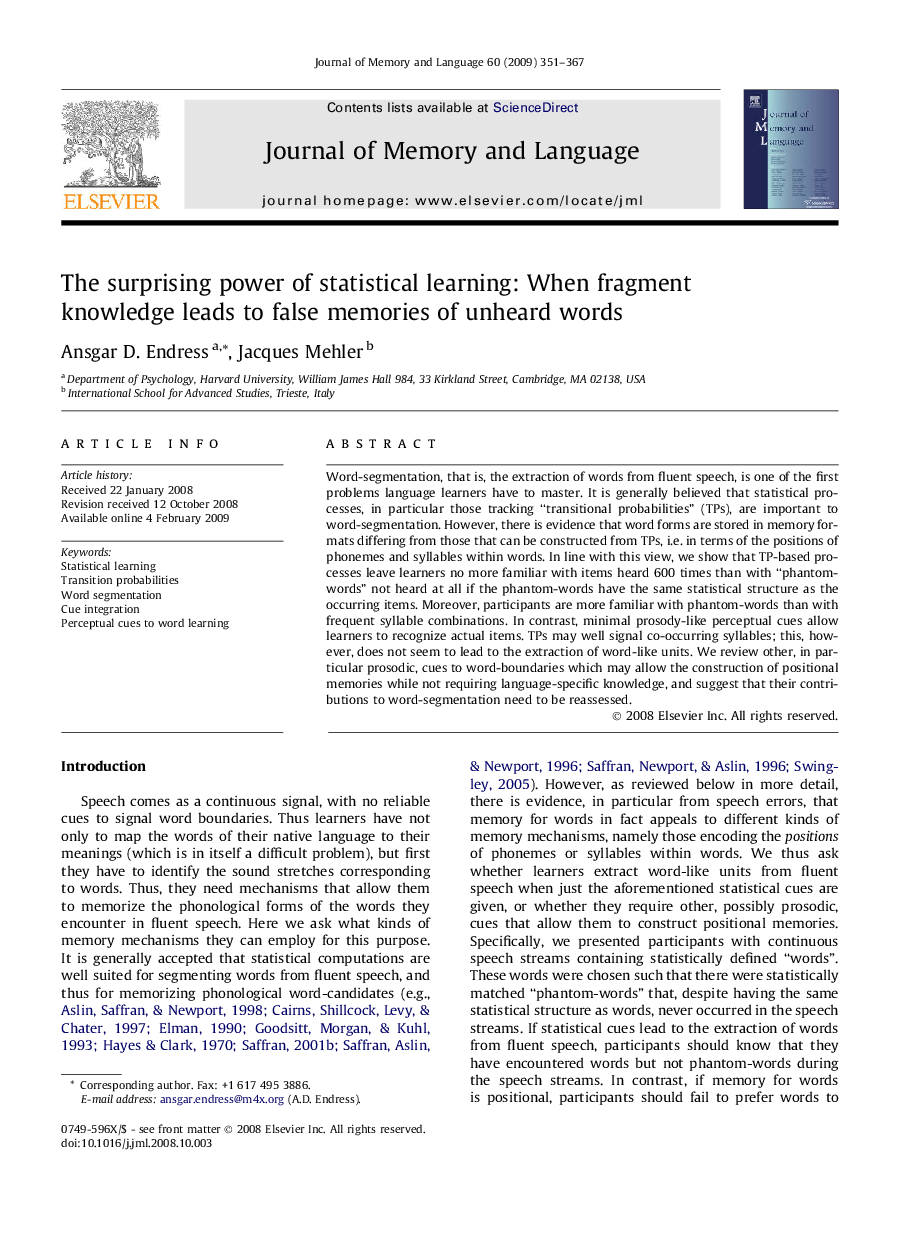| کد مقاله | کد نشریه | سال انتشار | مقاله انگلیسی | نسخه تمام متن |
|---|---|---|---|---|
| 932257 | 923089 | 2009 | 17 صفحه PDF | دانلود رایگان |

Word-segmentation, that is, the extraction of words from fluent speech, is one of the first problems language learners have to master. It is generally believed that statistical processes, in particular those tracking “transitional probabilities” (TPs), are important to word-segmentation. However, there is evidence that word forms are stored in memory formats differing from those that can be constructed from TPs, i.e. in terms of the positions of phonemes and syllables within words. In line with this view, we show that TP-based processes leave learners no more familiar with items heard 600 times than with “phantom-words” not heard at all if the phantom-words have the same statistical structure as the occurring items. Moreover, participants are more familiar with phantom-words than with frequent syllable combinations. In contrast, minimal prosody-like perceptual cues allow learners to recognize actual items. TPs may well signal co-occurring syllables; this, however, does not seem to lead to the extraction of word-like units. We review other, in particular prosodic, cues to word-boundaries which may allow the construction of positional memories while not requiring language-specific knowledge, and suggest that their contributions to word-segmentation need to be reassessed.
Journal: Journal of Memory and Language - Volume 60, Issue 3, April 2009, Pages 351–367